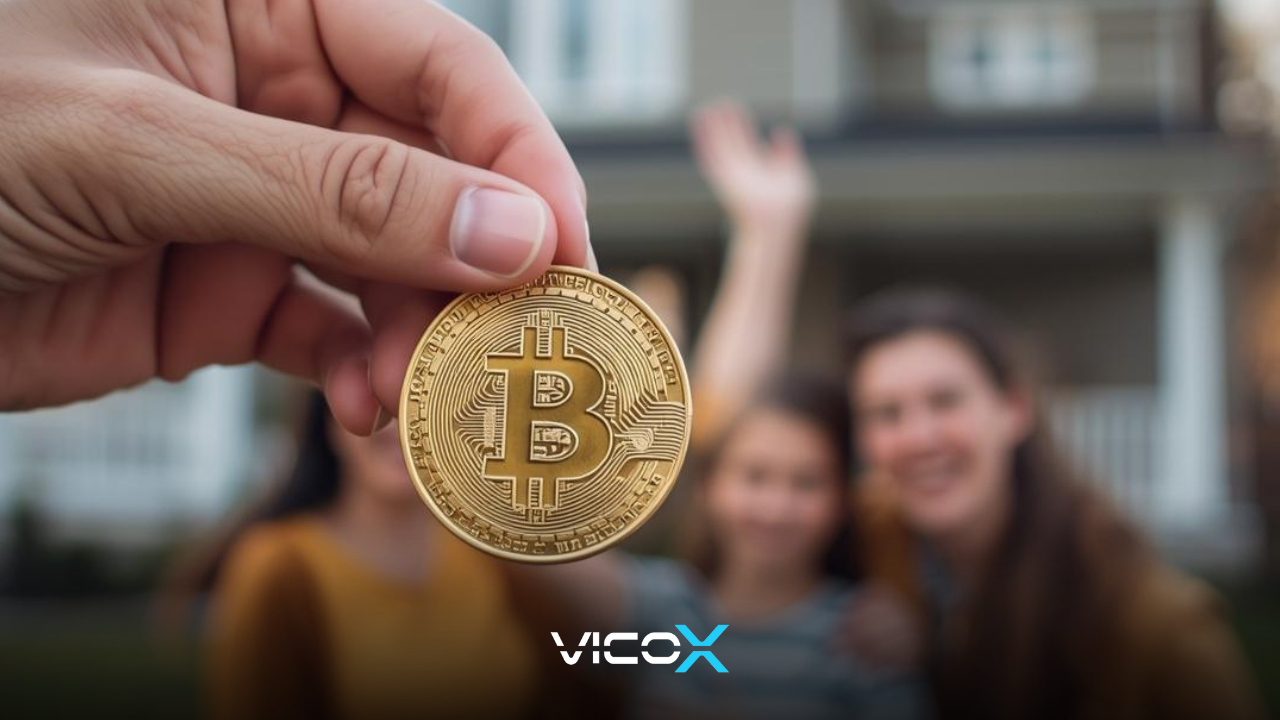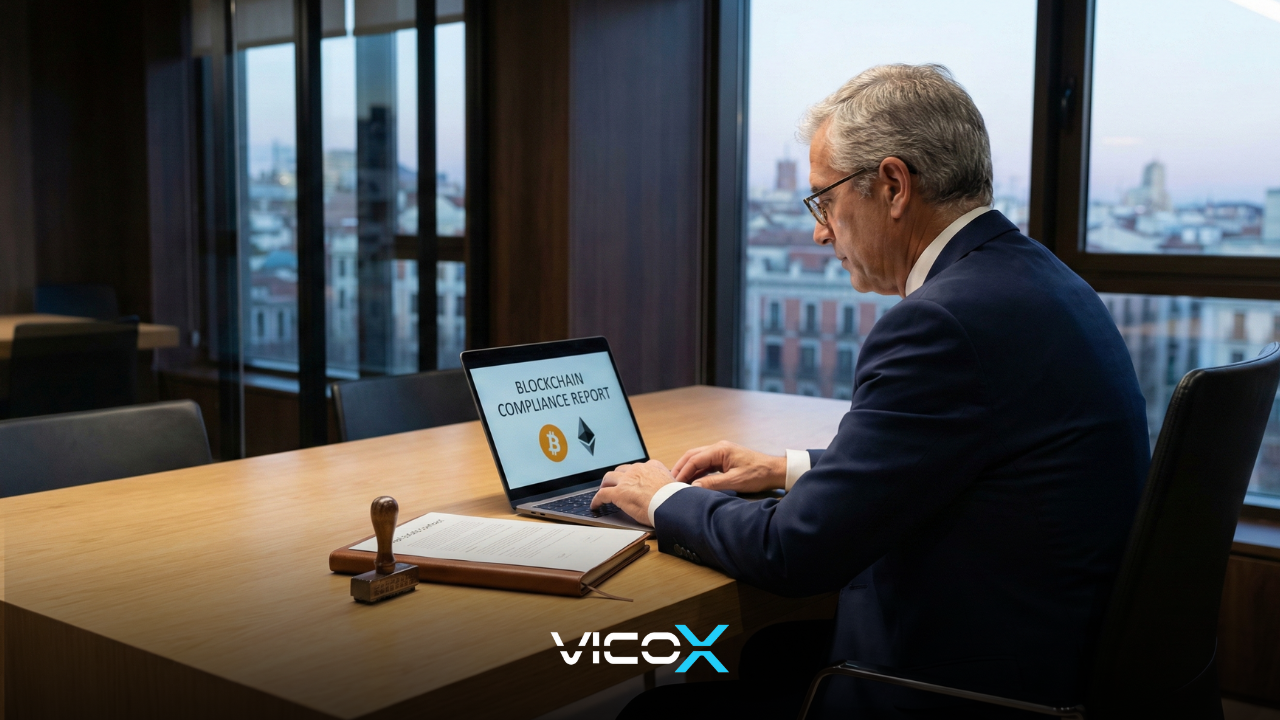The Future of Real Estate Is Digital
Buying property in Spain with cryptocurrency is no longer a futuristic concept, it’s an evolving investment trend embraced by global investors, digital nomads, and tech entrepreneurs. With Spain’s growing openness to digital assets and a strong real estate market, 2025 represents the perfect time to diversify your portfolio using crypto.
Whether you’re converting Bitcoin into bricks or diversifying Ethereum into real-world assets, Spain offers a secure, transparent, and legally sound framework for crypto-backed property transactions.
Why Spain Is the Perfect Market for Crypto Real Estate
Spain combines three essential ingredients for crypto investors: a stable legal framework, a dynamic property market, and international appeal.
Key advantages:
✅ Strong legal system that supports digital transactions
✅ Robust real estate demand in Madrid, Marbella, and Barcelona
✅ Crypto-friendly legal experts and regulated OTC exchanges
✅ Tax incentives for non-residents and Golden Visa opportunities
Spain’s property market remains one of Europe’s most attractive, especially for international investors seeking transparency, stability, and lifestyle benefits.
Step-by-Step: How to Buy Property in Spain with Crypto
Step 1. Define Your Investment Goals
Determine if you’re buying for residence, rental income, or long-term capital appreciation. Each purpose has different tax and legal implications.
Step 2. Choose a Crypto-Friendly Property or Developer
Many real estate developers and private sellers in Spain now accept crypto payments — often facilitated through licensed intermediaries or crypto-to-fiat conversion services.
Step 3. Legal Due Diligence
Work with a specialized legal firm like Vicox Legal to verify:
- Ownership and property title
- Absence of debts or legal issues
- Compliance with anti-money laundering (AML) regulations
Step 4. Secure Conversion or Direct Payment
You can pay directly in BTC, ETH, or USDT — or convert to euros through a regulated platform. Vicox Legal collaborates with trusted partners such as Banxa, ensuring secure and compliant crypto-to-fiat transactions.
Step 5. Sign the Purchase Agreement
Contracts can be executed traditionally or digitally via blockchain verification. In most cases, notarization and registry inscription are mandatory to formalize the purchase.
Step 6. Tax Settlement & Registration
Taxes vary depending on the property type (new or resale) and your residency status. Legal advisors ensure compliance with the Spanish Tax Agency and proper registration in the Land Registry.
⚖️ Legal & Tax Framework for Crypto Real Estate in Spain
Spain recognizes cryptocurrency as a digital asset, not legal tender. Therefore, transactions involving crypto are treated as asset transfers, triggering possible capital gains taxes.
Key legal points:
- KYC/AML checks are mandatory
- Crypto-to-euro conversions may be subject to reporting
- Smart contracts are valid if legally signed
- EU regulations (MiCA) apply from 2025, ensuring transparency and consumer protection
Working with a crypto-legal firm like Vicox ensures that your transaction remains compliant while optimizing for tax efficiency.
Understanding Spain’s Evolving Legal Landscape for Crypto Assets
Spain’s approach to regulating cryptocurrency has evolved rapidly between 2021 and 2025. The country follows a balanced model that encourages innovation while protecting investors and ensuring transparency. Under the Spanish Civil Code and Law 10/2010 on Anti-Money Laundering (AML), all digital asset transactions, including those used in real estate, must be verifiable and traceable.
The Agencia Tributaria (Spanish Tax Agency) requires buyers to declare any crypto-to-euro conversions, and notaries are now familiar with procedures for recording blockchain-backed transactions. Additionally, the European Union’s MiCA Regulation (Markets in Crypto Assets), effective from 2025, harmonizes rules across Europe, creating a more predictable and secure environment for property investors using crypto.
For investors, this means Spain has become one of the few EU countries where buying a house with Bitcoin or stablecoins can be done safely and legally, provided proper documentation and legal support are in place.

Tax Considerations When Buying Real Estate with Crypto
Understanding how crypto transactions are taxed in Spain is essential for any international investor. The Agencia Tributaria treats cryptocurrency as a capital asset, meaning that converting crypto to euros before or during a real estate purchase may generate capital gains tax. The rate varies between 19% and 26% for residents, and 19% for non-residents.
Other taxes depend on the type of property:
- ITP (Impuesto de Transmisiones Patrimoniales): 6–10% for resale properties.
- IVA (Value Added Tax): 10% for new constructions or off-plan properties.
- Notary and registry fees: typically 1–2% of the property value.
When crypto is used directly as a form of payment, the transaction is recorded in euros in the notarial deed, with the equivalent crypto value referenced for traceability. Vicox Legal assists in ensuring all these steps comply with the Spanish General Tax Law (Ley General Tributaria) and with the official guidelines published by the BOE (Boletín Oficial del Estado).
Choosing the Right Crypto for Property Purchases
While Bitcoin remains the most used currency, many transactions are executed with stablecoins due to price stability.
Most accepted cryptocurrencies:
- Bitcoin (BTC)
- Ethereum (ETH)
- Tether (USDT)
- USD Coin (USDC)
- Binance USD (BUSD)
Stablecoins minimize volatility and simplify tax calculations, making them ideal for real estate closings.
The Role of Blockchain in Modern Spanish Real Estate
Blockchain technology is revolutionizing the Spanish property market by introducing verifiable, tamper-proof transaction records. While property titles are still registered through the traditional Registro de la Propiedad, blockchain provides an additional layer of transparency and security.
Developers in cities like Marbella and Valencia are beginning to tokenize real estate assets, allowing fractional ownership and easier cross-border participation. Smart contracts, when validated by legal professionals, can automate parts of the buying process—reducing costs and human error. This synergy between blockchain and Spanish property law is setting a precedent for the rest of Europe.
For international buyers, this means faster transactions, transparent records, and reduced risk of fraud—especially when guided by a law firm experienced in both Web3 and real estate law, such as Vicox Legal.
Spain vs. Other Crypto-Friendly Countries
| Country | Legal Status of Crypto | Real Estate Acceptance | Tax Benefits |
|---|---|---|---|
| Spain | Legal as digital asset | Growing acceptance (BTC, USDT) | Golden Visa + tax reliefs |
| Portugal | Crypto gains tax-free (until 2023) | High adoption | Golden Visa option |
| Dubai (UAE) | Fully regulated crypto market | Many developers accept BTC | No personal income tax |
| USA (Miami) | State-regulated | Accepted in luxury markets | Capital gains apply |
| El Salvador | Bitcoin legal tender | Officially recognized | Tax incentives for crypto investors |
Spain’s unique combination of EU regulation, Mediterranean appeal, and established property law makes it a prime destination for crypto investors seeking both lifestyle and legal safety.
Common Challenges When Buying Property with Crypto, and How to Overcome Them
Although crypto real estate purchases in Spain are becoming increasingly common, there are still challenges that buyers should anticipate. These include:
- Price volatility between signing and closing dates.
- Bank hesitation when handling crypto-related transfers.
- Complex tax declarations for non-resident investors.
Fortunately, these issues are manageable with the right preparation. Working with experienced crypto lawyers ensures compliance with the Banco de España and CNMV (National Securities Market Commission) standards, while regulated OTC partners minimize volatility risk by locking in crypto-to-fiat exchange rates in real time.
As Spain’s digital economy matures, these early hurdles are expected to diminish, making crypto-backed real estate deals as routine as traditional euro transactions.
Spain’s Crypto Future: A Bridge Between Digital Assets and Real Estate
Spain’s leadership in adopting blockchain and digital assets for real estate positions it as a future hub for Web3-based investment. The combination of progressive legal adaptation, solid infrastructure, and international appeal means that crypto real estate transactions will likely become mainstream by 2026.
From the Costa del Sol to Madrid’s business districts, more developers are incorporating crypto payments into their sales strategies. As smart contracts gain legal recognition and MiCA regulations enhance investor protection, Spain offers both innovation and security—two values central to the crypto philosophy.
Whether you are a crypto whale diversifying your portfolio or a digital nomad seeking a base in Europe, Spain’s property market now welcomes you with open arms—and digital wallets.
Why Work with Vicox Legal
Vicox Legal specializes in crypto-to-property transactions across Spain, Portugal, and other international markets. Our expertise bridges the gap between blockchain and traditional property law.
Our Services:
- Crypto legal compliance & AML verification
- Escrow services (crypto and fiat)
- Smart contract drafting & validation
- Cross-border real estate purchases
- International tax optimization
With Vicox, your crypto investment transforms into a tangible, fully legal property asset in Spain, safely and efficiently.
Real Case Studies: Successful Crypto Property Investments
Case 1 – Bitcoin to Villa in Marbella
A global investor converted 12 BTC into a €600,000 luxury villa through a secure escrow process managed by Vicox Legal and Banxa. The transaction was completed within 72 hours with full compliance.
Case 2 – Ethereum Purchase in Madrid
An entrepreneur acquired a €450,000 apartment in central Madrid using ETH, combining blockchain verification and traditional registration for complete transparency.
Tips for a Smooth Crypto Real Estate Transaction
- Always verify the property title before transfer.
- Use stablecoins for high-value deals to avoid volatility.
- Choose a legal partner experienced in both crypto and property.
- Keep records of all transactions and wallet transfers.
- Ensure the crypto-to-fiat conversion is made through regulated providers.
💬 FAQs – Buying Real Estate in Spain with Cryptocurrency
Can I buy property in Spain directly with cryptocurrency?
Yes, depending on the seller’s preference. Some developers and private sellers now accept Bitcoin (BTC), Ethereum (ETH), or stablecoins such as USDT and USDC. Vicox Legal ensures that every crypto transaction follows Spanish real estate law and complies with AML and tax regulations.
What taxes apply when buying property with crypto?
Capital Gains Tax (on crypto conversion), Property Transfer Tax (ITP) or VAT (IVA), and notary or registry fees apply. Vicox Legal structures transactions to minimize tax exposure while maintaining full compliance with Spanish fiscal laws.
How do I prove the source of funds when using Bitcoin?
Under Spain’s Anti-Money Laundering (AML) laws, buyers must provide wallet traceability, transaction history, and exchange statements. Vicox Legal prepares all required documentation to meet notarial and banking standards.
Which cryptocurrencies are most commonly accepted?
The most widely accepted cryptocurrencies for property purchases in Spain are Bitcoin (BTC), Ethereum (ETH), and stablecoins such as Tether (USDT) and USD Coin (USDC). These are preferred due to their liquidity and reliability in cross-border transactions.
How can I ensure full legal compliance when buying with crypto?
The safest approach is to work with a specialized crypto law firm such as Vicox Legal, which coordinates with regulated exchanges, notaries, and banks to ensure the entire process meets Spanish and EU legal requirements.
Related Articles – The Essential Reading List
To secure your investment and ensure full compliance in your chosen Spanish destination, deepen your knowledge with these related expert guides:
- Tax Compliance: Spain Crypto Real Estate Taxes Explained (For Foreigners)
- A comprehensive breakdown of Capital Gains, Wealth Tax (IP), and ITP for non-resident investors.
- The Luxury Process: Step-by-Step: Buy a Villa in Marbella with Bitcoin (2025 Update)
- A detailed procedural roadmap, focusing on high-value transactions in the luxury market.
- Professional Network: Crypto-Friendly Real Estate Agents in Spain – 2025 Update
- Identify the key professionals and networks necessary for smooth crypto-to-fiat transactions.




